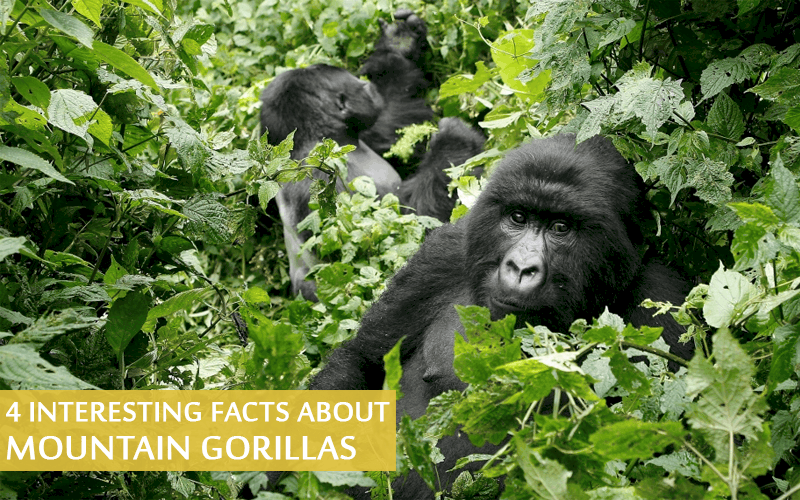While this is the best season for Gorilla trekking, it’s also advisable to learn a fact or two about the friendly, sensitive, gentle creatures who are the talk of the African town. These mountain gorillas are one of the basic attractions why so many people want to experience this exotic place at least once in their lifetime. Apart from the fact that this region has one of the most exquisite tourist spots, these gorilla tours in Uganda are what people look forward to when they want to feel the beauty of this planet and desire some pampering by these creatures who are more welcoming than some human beings.
Amazing Facts about Mountain Gorillas
Apart from their friendly nature, down-to-earth personalities, thicker and shinier coats, and strong bodies, these creatures are worth staying lodged in your memories of Gorilla trekking because:
1. You Won’t See Them Behind Cages or Isolated, Over!
These gorillas do not like to stay isolated or captured. That’s why they are less likely (or never) to be seen in zoos or artificial safari parks. The ones you witness in zoos belong to the lowlands of Africa, probably from the western side. These unique primates can only be seen in rare places of Africa. And if you’d really love to meet them, go for a Gorilla tour in Uganda, where you can meet them in their natural habitat.
2. Despite Their Size and Strength, They are NOT Dangerous!
Tour guides from Uganda often remark on their favourite question about Gorilla trekking, “Are these Gorillas aggressive, or dangerous?” And the answer is pretty simple, “NO! These gorillas won’t hurt your friend, or spouse, or kid even.” This answer makes these Gorilla tours in Uganda safer than other parts of the world if you truly want to stay close to natural flora and fauna. Most of these creatures are quite shy and NOT violent. They are playful, chuckle and giggle when tickled, and may behave mischievously – they want to feel pampered too! However, if they feel threatened, or if you touch their babies in ways that they don’t like, they’ll surely roar and beat their chests. So, their possessiveness and protective feelings are a trait they closely share with human beings.
3. Silverbacks are Manly, Mature Gorilla Fathers.
We already know that they don’t stay isolated and love wandering even as nomads in troops. It is also one of the amazing facts about mountain Gorillas that the males, once they become mature, act as protectors of the family. They make sure everybody is part of the troop while travelling, help their female and kid members of the family while eating and feeding, provide shelter, and take care of the family’s comfort. They are physically stronger than other members of the family and can lift weights of 400 pounds. While this fact supports mature members, it’s also surprising that the newborn gorillas only weight about 4 pounds (yes, less than a healthy human newborn). But they have a fast growth rate and can sit without support while they are only 85-90 days old.
4. Mountain Gorillas Have Time-Tables!
Just like human beings, mountain gorillas also have social systems, family rules, and, most importantly, strict routines. The mature silverback (the male member of the family) decides a timetable and instructs when female and children gorillas should sleep, eat, travel, take naps, and even play and interact with gorillas of other families. So, if you’re planning a Gorilla tour in Uganda, remember that they are early to bed and early to rise. And that’s how they become healthy, mature, and wise (to tackle even dreary, cold, driest to hottest weather of the year).
Final Thoughts
During gorilla trekking, you may find these strong, yet adorable and cheeky creatures foraging for food, or learning and using tools like giant branches and tea logs for crossing streams and rescuing younger gorillas. So these facts about gorilla mountains aren’t only for fun. Human beings actually have a lot of social values to learn from them. They have their own world, their social systems, and principles to live by. Like human beings, they are loyal to their families and never isolate their troop members when they are in need.









